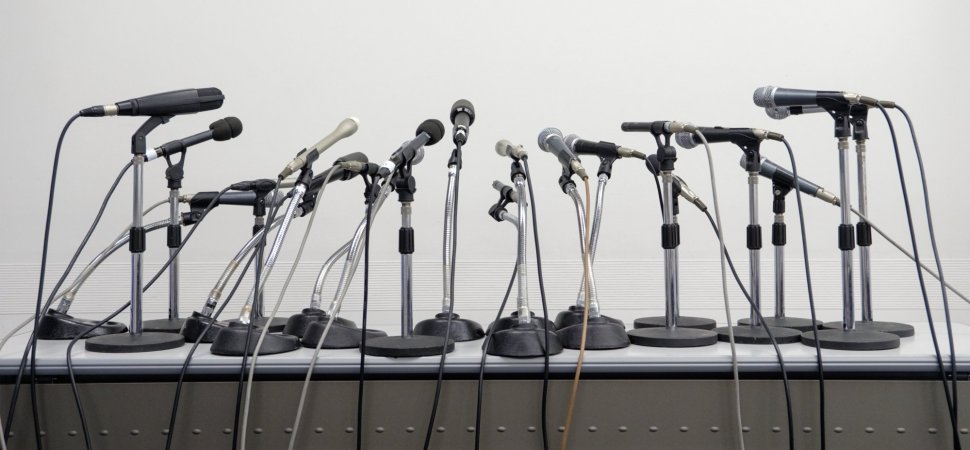
These past few weeks, we have seen what feels like an unusually high number of people faced with accusations of wrongdoing, sexual misconduct and unethical behavior. For most of them, the first response is one of denial and disputation. But as evidence and corroboration emerge, that strategy becomes harder to maintain.
That’s when most people turn to a public apology–a statement expressing remorse over their actions and acknowledging that they’ve been hurtful to others.
It’s not likely that you’ll ever need to respond to such serious and public allegations, but all of us do things we regret and–intentionally or not–act to hurt others. We all have occasion to apologize and take responsibility for things we’ve said and done.
But a ham-fisted, insincere apology can actually create more harm. Here are some important distinctions to consider the next time you find yourself needing to make an apology:
The Wrong Way to Apologize:
Blame.
One of the worst things you can do blame someone else for your own misconduct, misbehavior, wrongdoing or unprofessionalism–especially if the person you blame is someone you victimized to begin with,
Justify.
When you try to defend your behavior by claiming it was justified, saying that different standards applied in this particular situation, or making any other excuse, you’re only making yourself look worse.
Minimize.
When you downplay your hurtful actions, you send a message that the effects of your behavior on others aren’t important to you. It’s disrespectful not only to the people you’ve harmed but to everyone around you, and it makes you appear manipulative.
Excuse.
When giving an apology, many people are tempted to explain their actions. Even if it’s well intended, this approach is likely to come off sounding like an excuse and will only weaken your apology. There may be a time to provide more background that helps explain what happened, but that time probably isn’t now.
The Right Way to Apologize:
Acknowledge.
Be the first to admit that you did something wrong; don’t deny or rebut. When you apologize, you’re acknowledging that you engaged in unacceptable behavior. It’s an act that helps you rebuild trust and restore relationships. Depending on the circumstances, it can also be the springboard to a conversation about acceptable standards.
Accept.
When you accept full responsibility for the situation, you restore dignity to the person you hurt. This can begin the healing process and shut down any victim-blaming (by others or by the victim themselves). For example: “I know I hurt your feelings yesterday when I snapped at you. I’m sure it embarrassed you, especially since everyone else on the team was there. I was wrong to treat you like that and I apologize.”
Express.
Acknowledging your wrongdoing is a good beginning, but the heart of an apology is expressing the thoughts I’m sorry and I hope you can forgive me. A sincere apology is itself a demonstration that you’re taking responsibility for your actions. This can strengthen your self-confidence, self-respect and reputation. You’re likely to feel a sense of relief when you come clean about your actions, and it’s one of the best ways to restore your character.
Amend.
While it’s important to ask for forgiveness, keep in mind that the other person may not be ready. Give them time and don’t try to rush them through the process. In the meantime, Think carefully about this step and what you can do that may be helpful. Token gestures or empty promises will do more harm than good. Similarly, don’t go overboard out of guilt. Work to find an appropriate way to make amends.
Why It Matters
Apologizing the right way, when you have hurt someone unnecessarily, by mistake or on purpose, is the first step in the path toward reconciliation–between the other person and you, or, if nothing else, between you and your conscience.
If you don’t apologize at all or if you can’t be bothered to apologize the right way, you can do lasting damage to your relationships, your reputation, your career opportunities, and your effectiveness. Most important, it lowers the respect in which others hold you and, likely, in which you hold yourself.
We all make mistakes and we all hurt others. When it happens, a sincere and well-thought-out apology is always the best first step in recovering your integrity.
N A T I O N A L B E S T S E L L E R
The Leadership Gap: What Gets Between You and Your Greatness
After decades of coaching powerful executives around the world, Lolly Daskal has observed that leaders rise to their positions relying on a specific set of values and traits. But in time, every executive reaches a point when their performance suffers and failure persists. Very few understand why or how to prevent it.
Additional Reading you might enjoy:
- 12 Successful Leadership Principles That Never Grow Old
- A Leadership Manifesto: A Guide To Greatness
- How to Succeed as A New Leader
- 12 of The Most Common Lies Leaders Tell Themselves
- 4 Proven Reasons Why Intuitive Leaders Make Great Leaders
- The One Quality Every Leader Needs To Succeed
- The Deception Trap of Leadership
Photo Credit: Getty Images
Of Lolly’s many awards and accolades, Lolly was designated a Top-50 Leadership and Management Expert by Inc. magazine. Huffington Post honored Lolly with the title of The Most Inspiring Woman in the World. Her writing has appeared in HBR, Inc.com, Fast Company (Ask The Expert), Huffington Post, and Psychology Today, and others. Her newest book, The Leadership Gap: What Gets Between You and Your Greatness has become a national bestseller.
Barry Hall
28. Jul, 2018
Many thanks Lolly for a great interesting post, — Barry.
lollydaskal
28. Jul, 2018
Thank you Barry!